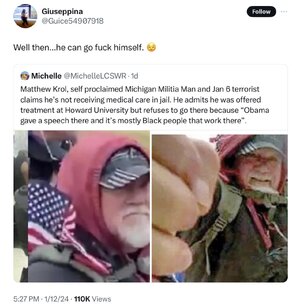Winans told me, he was barely hanging on at Cornerstone. The church
had become unruly; his job had become unbearable. Not long after Dad died—making Winans the unquestioned leader of the church—the coronavirus pandemic arrived. And then George Floyd was murdered. All of this as Donald Trump campaigned for reelection. Trump had run in 2016 on a promise that “Christianity will have power” if he won the White House; now he was warning that his opponent in the 2020 election, former Vice President Joe Biden, was going to “hurt God” and target Christians for their religious beliefs. Embracing dark rhetoric and violent conspiracy theories, the president enlisted prominent evangelicals to help frame a cosmic spiritual clash between the God-fearing Republicans who supported Trump and the secular leftists who were plotting their conquest of America’s Judeo-Christian ethos.
People at Cornerstone began confronting their pastor, demanding that he speak out against government mandates and Black Lives Matter and Joe Biden. When Winans declined, people left. The mood soured noticeably after Trump’s defeat in November 2020. A crusade to overturn the election result, led by a group of outspoken Christians—including Trump’s lawyer Jenna Ellis, who later pleaded guilty to a felony charge of aiding and abetting false statements and writings, and the author Eric Metaxas, who suggested to fellow believers that martyrdom might be required to keep Trump in office—roiled the Cornerstone congregation. When a popular church staffer who had been known to proselytize for QAnon was fired after repeated run-ins with Winans, the pastor told me, the departures came in droves. Some of those abandoning Cornerstone were not core congregants. But plenty of them were. They were people who served in leadership roles, people Winans counted as confidants and friends.
By the time Trump supporters invaded the U.S. Capitol on January 6, 2021, Winans believed he’d lost control of his church. “It’s an exodus,” he told me a few weeks later, sitting inside Brighton Bar & Grill.
The pastor had felt despair—and a certain liability—watching the attack unfold on television. Christian imagery was ubiquitous: rioters forming prayer circles, singing hymns, carrying Bibles and crosses. The perversion of America’s prevailing religion would forever be associated with this tragedy; as one of the legislative ringleaders, Senator Josh Hawley, explained
in a speech the following year, long after the blood had been scrubbed from the Capitol steps, “We are a revolutionary nation precisely because we are the heirs of the revolution of the Bible.”

www.nbcnews.com
























 Let him rot.
Let him rot.
 ](*,)](/images/smilies/bang.gif)
